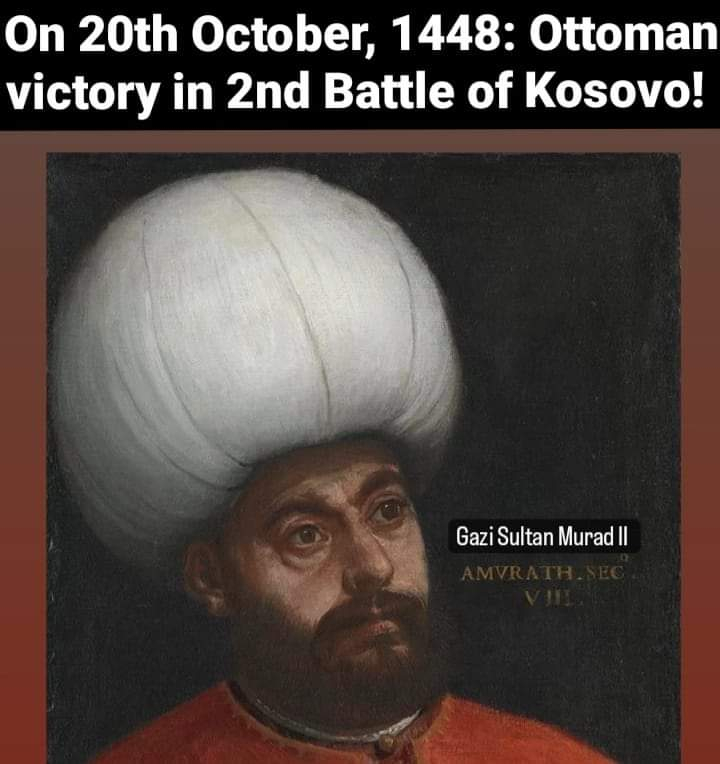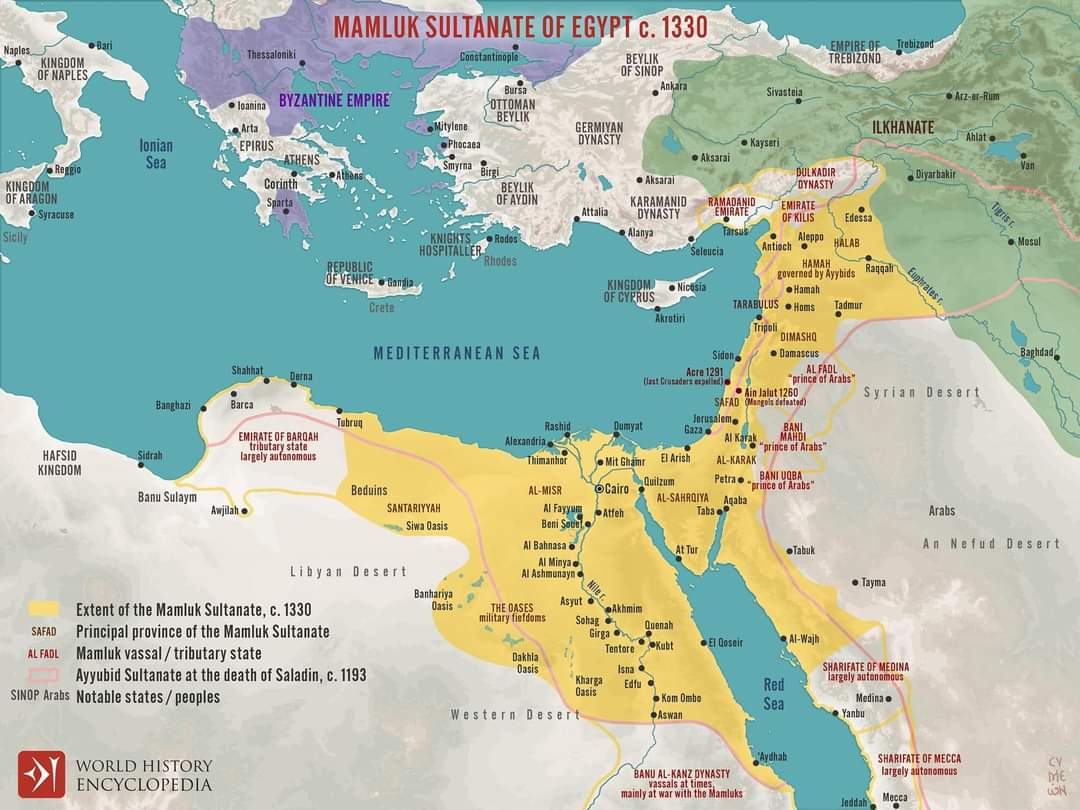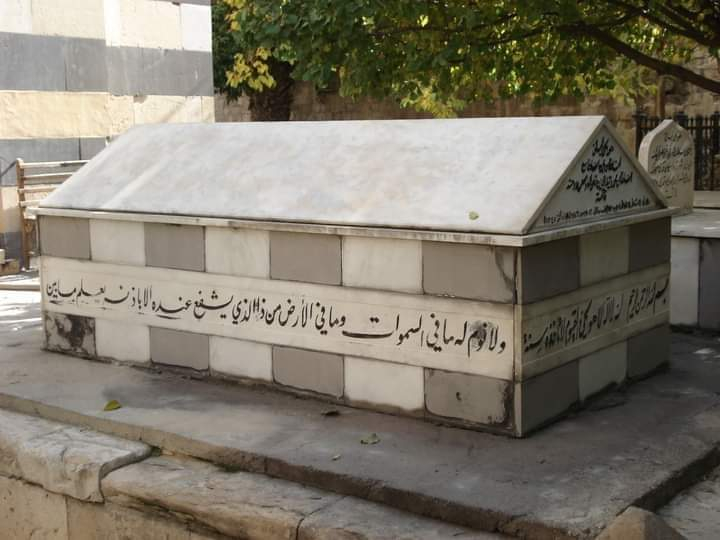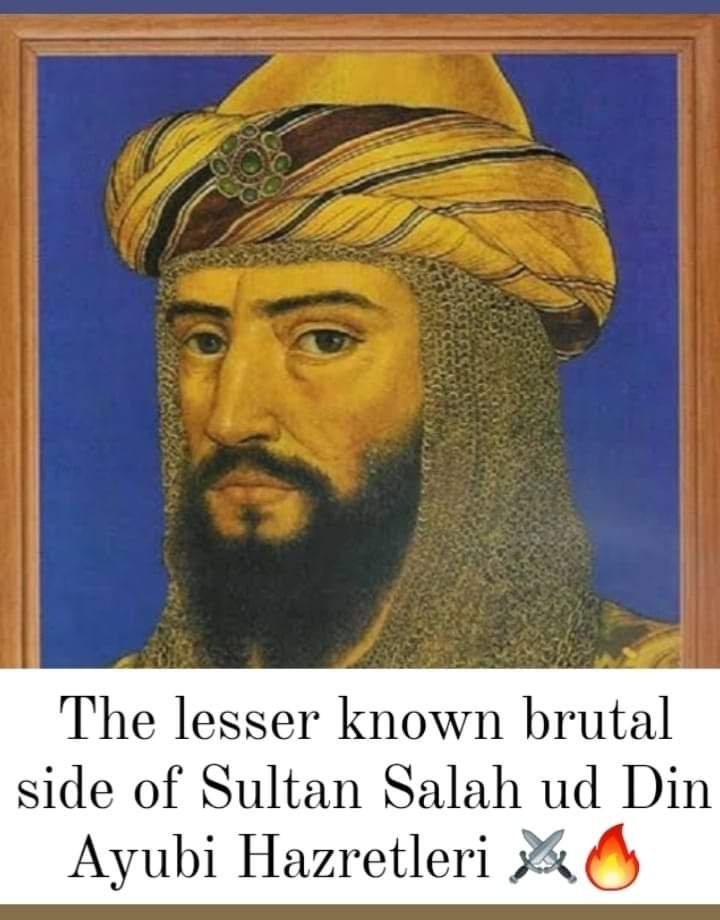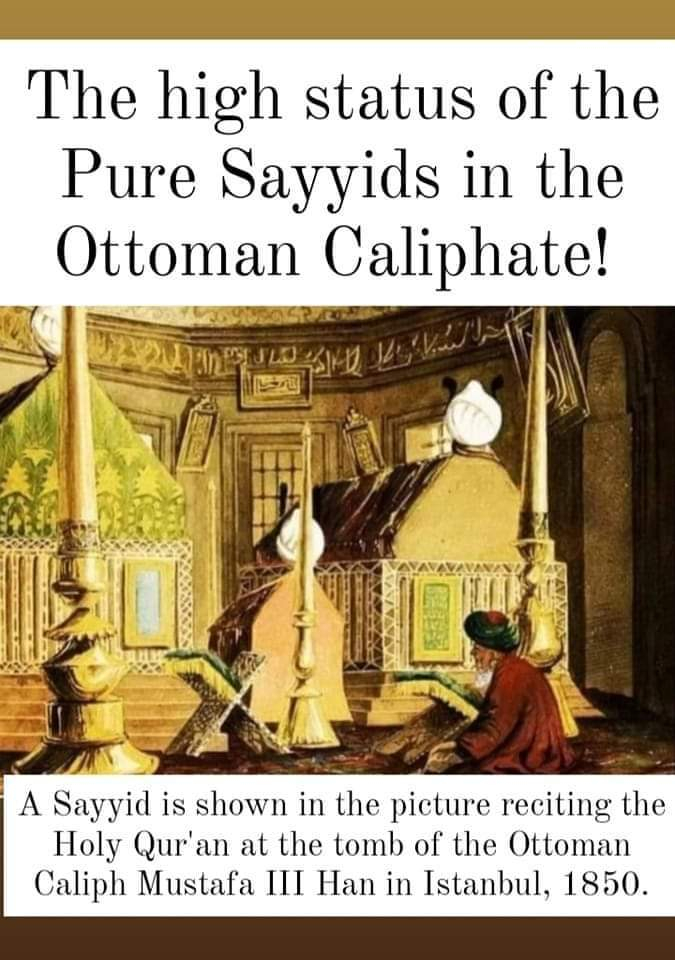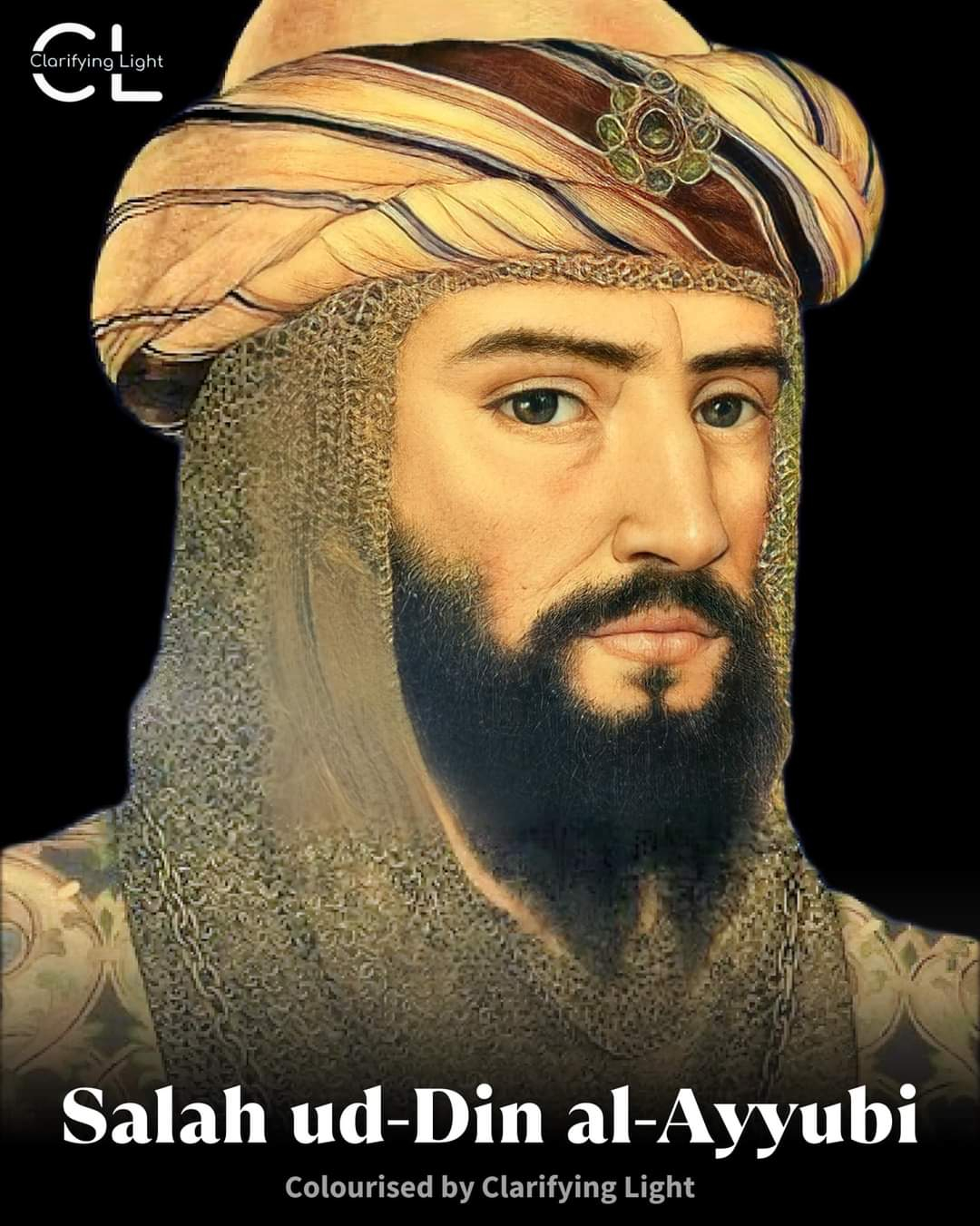Yusuf ibn Ayyub ibn Shadhi (1137 – 4 March 1193), commonly known by the title Salah ud Din ,was the founder of the Ayyubid Sultanate. Hailing from an ethnic Kurdish family, he was the first Sultan of both Egypt and Syria. He is popularly known for liberating Al-Quds, the land of Jerusalem or the first Islamic Qiblah.
Sultan Salah ud Din spearheaded the Muslim military effort against the Crusader states in the Levant. At the height of his power, Ayyubid territorial limit spanned Egypt, Syria, Upper Mesopotamia, the Hejaz, Yemen, the Maghreb, and Nubia. The Sultan was indeed Kurdish by race but far from being any ethno nationalist.
He was an Orthodox Sunni Muslim and also a disciple of the Sultan ul Awliyah, Shaykh Sayyid Abdul Qadir Jillani (رحمه الله تعالی) the leader of Sunni Orthodoxy and 13th direct descendant of the Fifth Rightly Guided Caliph Sayyidina Imam Hassan ibn Ali رضي الله عنهم . So, Sultan Salah ud Din Ayubi Hazretleri has the honor of having this unique spiritual link which reaches to the King of all Prophets Sayyidna Muhammad ﷺ.
[Source: Saladin, Pearson Longman. p. 48]
Sultan Salah ud Din was famous for his kind, generous, and forgiving nature. Despite the horrendous slaughter of Muslims by Crusaders' when they originally conquered Jerusalem in 1099, Sultan granted amnesty to all common Catholics and even to the defeated Christian army, as long as they were able to pay the aforementioned ransom (the Greek Orthodox Christians were treated even better because they often opposed the western Crusaders).
20th-century French author Albert Champdor described Sultan Salah ud Din as "Le plus pur héros de l'Islam" (English: The purest Hero of Islam) through his book. As early as 1202/03, Walther von der Vogelweide urged the German King Philip of Swabia to be more generous like Salah ud Din, who believed that a king's hands should have holes to let the gold fall through.
[Introduction to the History of the Muslim East, Historical Bibliography. University of California Press. p. 166.]
In April 1191, a Frankish woman's three month old baby had been stolen from her camp and sold on the market. The Franks urged her to approach Salah ud Din herself with her grievance. According to Baha ad-Din, Sultan used his own money to buy the child back:
He gave it to the mother and she took it; with tears streaming down her face, and hugged the baby to her chest. The people were watching her and weeping and I (Ibn Shaddad) was standing amongst them. She suckled it for some time and then Sultan ordered a horse to be fetched for her and she went back to camp.
[Lyons, Malcolm Cameron; Jackson, D. E. P. (1982). Saladin: The Politics of the Holy War]
Sultan Salah ud Din died of a fever on 4 March 1193 (27 Safar 589 AH) at Damascus, not long after King Richard's departure. In Sultan Salah ud Din's possession at the time of his death were one piece of gold and forty silver pieces. He had given away wealth to his poor subjects, leaving nothing to pay for his funeral. He was buried in a mausoleum in the garden outside the Umayyad Mosque in Damascus, Syria.
[Baha ad-Din ibn Shaddad (2002). The Rare and Excellent History of Saladin]
May the Nur of Jenab e Haqq Allah Azzawajal fill the grave of Sultan Salah ud Din. Amin
#islamicknowledge #tarih #Saladin #Egypt #kurdish #IslamicHistory #March #today #TodayInHistory #knowledge #historicalYusuf ibn Ayyub ibn Shadhi (1137 – 4 March 1193), commonly known by the title Salah ud Din ,was the founder of the Ayyubid Sultanate. Hailing from an ethnic Kurdish family, he was the first Sultan of both Egypt and Syria. He is popularly known for liberating Al-Quds, the land of Jerusalem or the first Islamic Qiblah.
Sultan Salah ud Din spearheaded the Muslim military effort against the Crusader states in the Levant. At the height of his power, Ayyubid territorial limit spanned Egypt, Syria, Upper Mesopotamia, the Hejaz, Yemen, the Maghreb, and Nubia. The Sultan was indeed Kurdish by race but far from being any ethno nationalist.
He was an Orthodox Sunni Muslim and also a disciple of the Sultan ul Awliyah, Shaykh Sayyid Abdul Qadir Jillani (رحمه الله تعالی) the leader of Sunni Orthodoxy and 13th direct descendant of the Fifth Rightly Guided Caliph Sayyidina Imam Hassan ibn Ali رضي الله عنهم . So, Sultan Salah ud Din Ayubi Hazretleri has the honor of having this unique spiritual link which reaches to the King of all Prophets Sayyidna Muhammad ﷺ.
[Source: Saladin, Pearson Longman. p. 48]
Sultan Salah ud Din was famous for his kind, generous, and forgiving nature. Despite the horrendous slaughter of Muslims by Crusaders' when they originally conquered Jerusalem in 1099, Sultan granted amnesty to all common Catholics and even to the defeated Christian army, as long as they were able to pay the aforementioned ransom (the Greek Orthodox Christians were treated even better because they often opposed the western Crusaders).
20th-century French author Albert Champdor described Sultan Salah ud Din as "Le plus pur héros de l'Islam" (English: The purest Hero of Islam) through his book. As early as 1202/03, Walther von der Vogelweide urged the German King Philip of Swabia to be more generous like Salah ud Din, who believed that a king's hands should have holes to let the gold fall through.
[Introduction to the History of the Muslim East, Historical Bibliography. University of California Press. p. 166.]
In April 1191, a Frankish woman's three month old baby had been stolen from her camp and sold on the market. The Franks urged her to approach Salah ud Din herself with her grievance. According to Baha ad-Din, Sultan used his own money to buy the child back:
He gave it to the mother and she took it; with tears streaming down her face, and hugged the baby to her chest. The people were watching her and weeping and I (Ibn Shaddad) was standing amongst them. She suckled it for some time and then Sultan ordered a horse to be fetched for her and she went back to camp.
[Lyons, Malcolm Cameron; Jackson, D. E. P. (1982). Saladin: The Politics of the Holy War]
Sultan Salah ud Din died of a fever on 4 March 1193 (27 Safar 589 AH) at Damascus, not long after King Richard's departure. In Sultan Salah ud Din's possession at the time of his death were one piece of gold and forty silver pieces. He had given away wealth to his poor subjects, leaving nothing to pay for his funeral. He was buried in a mausoleum in the garden outside the Umayyad Mosque in Damascus, Syria.
[Baha ad-Din ibn Shaddad (2002). The Rare and Excellent History of Saladin]
May the Nur of Jenab e Haqq Allah Azzawajal fill the grave of Sultan Salah ud Din. Amin 🤲
#islamicknowledge #tarih #Saladin #Egypt #kurdish #IslamicHistory #March #today
#TodayInHistory #knowledge #historical


